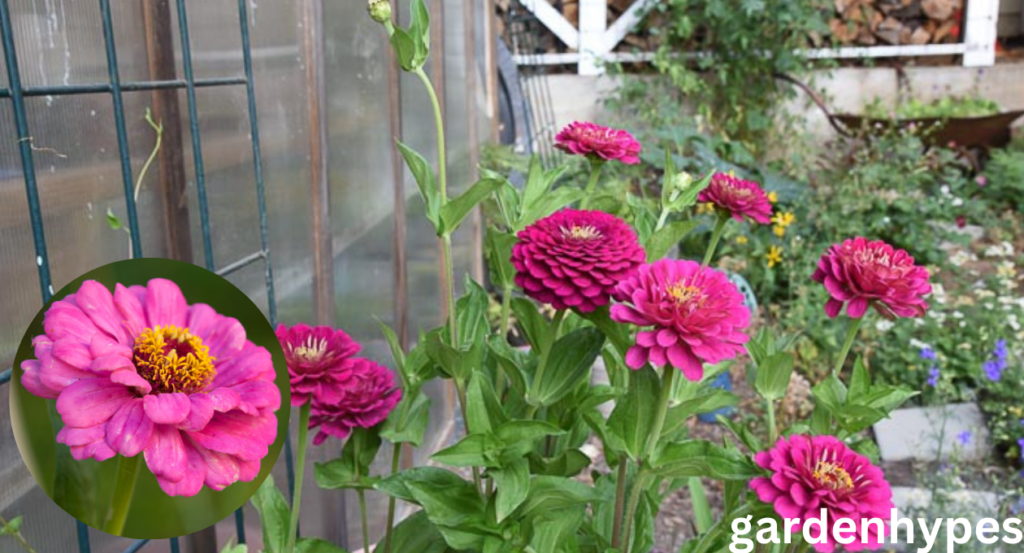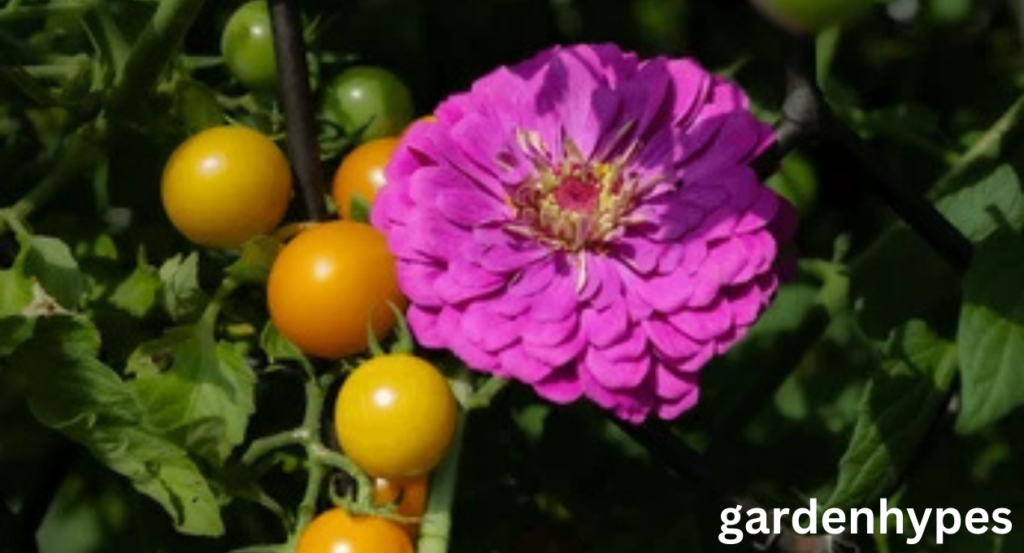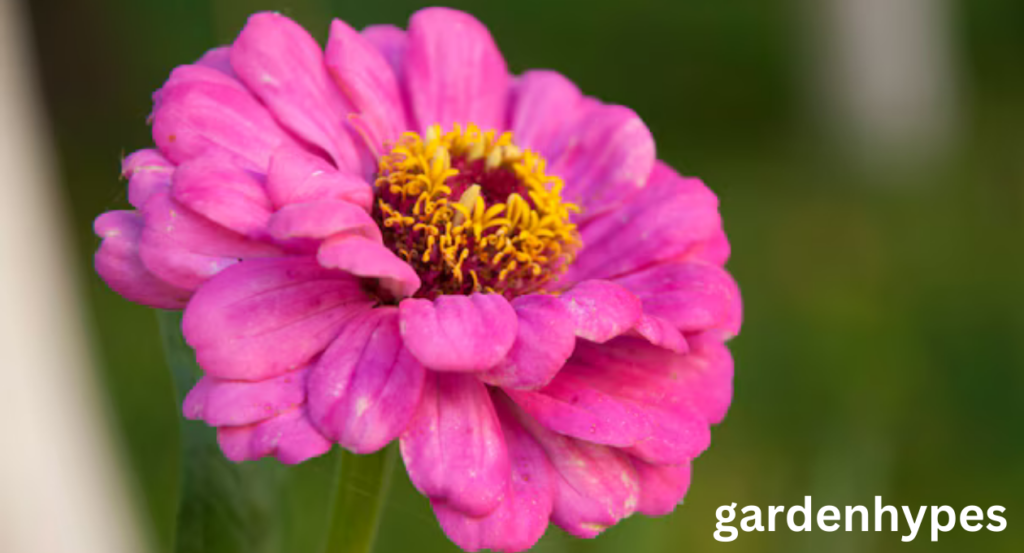Zinnia Companion Plants Perfect Pairings Thriving Garden2024
Zinnias are a gardener’s delight. With their bold colors, long-lasting blooms, and low maintenance, they brighten up any garden. But did you know that pairing zinnias with the right companion plants can boost your garden’s health, attract pollinators, and deter pests? This guide will explore the best zinnia companion plants and how to make your garden thrive.
click in link Mullein Look Alikes
Why Choose Zinnias for Companion Planting?
Zinnias are not just about aesthetics; they’re functional too. These hardy annuals thrive in full sun and are perfect for attracting beneficial insects, such as bees, butterflies, and ladybugs, which are essential for a healthy garden ecosystem. Their versatility makes them an ideal addition to vegetable gardens, herb beds, and flower borders.
Benefits of Companion Planting with Zinnias
1. Attracting Pollinators
Zinnias are a magnet for pollinators like bees and butterflies. Planting them alongside vegetables and fruits ensures better pollination and higher yields.
2. Deterring Harmful Pests
Zinnias help repel pests like aphids and attract predatory insects like ladybugs that feed on garden pests.
3. Enhancing Garden Aesthetics
With their vibrant colors and varied heights, zinnias create visual harmony when paired with complementary plants.
4. Supporting Soil Health
Companion planting with zinnias can improve soil conditions by reducing the spread of diseases and pests.
click in link Mullein Look Alikes

Best Companion Plants for Zinnias
1. Vegetables That Thrive with Zinnias
Zinnias are great for vegetable gardens as they attract pollinators and predatory insects.
Tomatoes
Tomatoes benefit from zinnias’ ability to attract bees and predatory insects, reducing pests like tomato hornworms.
Cucumbers
Cucumber plants rely on pollinators for fruit production, and zinnias help increase pollination activity.
Peppers
Zinnias and peppers are a great match since peppers benefit from the pest control and pollination zinnias provide.
2. Herbs That Pair Well with Zinnias
Herbs not only complement zinnias visually but also add functional benefits.
Basil
Basil helps repel whiteflies and mosquitoes, enhancing zinnias’ pest control properties.
Dill
Dill attracts beneficial insects like hoverflies and predatory wasps, which also benefit zinnias.
Cilantro
Cilantro brings in predatory insects that help control pests attracted to zinnias.
click in link Mullein Look Alikes
3. Flowers That Complement Zinnias
Pairing zinnias with other flowers creates a vibrant and pollinator-friendly garden.
Marigolds
Both marigolds and zinnias repel harmful pests, making them a powerful duo for a healthy garden.
Cosmos
Cosmos share zinnias’ love for full sun and attract pollinators, creating a harmonious and colorful flower bed.
Nasturtiums
Nasturtiums act as trap crops, drawing pests away from zinnias while adding beauty to the garden.
click in link Mullein Look Alikes

How to Plant Zinnias with Companions
1. Choose the Right Location
Zinnias and their companions thrive in full sun. Ensure your garden spot gets at least 6–8 hours of sunlight daily.
2. Maintain Proper Spacing
Give each plant enough room to grow and spread. Overcrowding can lead to poor air circulation and increased disease risk.
3. Match Soil Requirements
Zinnias prefer well-draining soil. Ensure their companions have similar soil preferences for optimal growth.
4. Water Wisely
Avoid overwatering zinnias as they prefer moderate moisture. Make sure your companions have similar water needs.
Common Mistakes to Avoid
1. Overcrowding the Garden
Planting zinnias too close to their companions can lead to competition for sunlight, water, and nutrients.
2. Pairing with Shade-Loving Plants
Zinnias thrive in full sun, so avoid pairing them with plants that prefer shade.
3. Ignoring Pollination Needs
While zinnias attract pollinators, ensure their companions also rely on pollinators to maximize the benefits.
click in link Mullein Look Alikes

Designing a Zinnia Companion Garden
To create a beautiful and productive garden, consider planting zinnias in clusters near vegetable beds or flower borders. Pair them with low-growing herbs like basil or ground covers like nasturtiums to add layers of texture and function. Use taller flowers like cosmos to add height and dimension.
Conclusion
Zinnias are more than just pretty flowers; they are hardworking allies in the garden. By pairing them with the right companion plants, you can boost your garden’s productivity, deter pests, and create a visually stunning landscape. Whether you’re growing vegetables, herbs, or flowers, zinnias are a must-have for a thriving, balanced garden.
click in link Mullein Look Alikes
FAQs
1. What vegetables grow best with zinnias?
Tomatoes, cucumbers, and peppers are excellent companions for zinnias as they benefit from increased pollinator activity and pest control.
2. Can zinnias be planted with herbs?
Yes! Herbs like basil, dill, and cilantro pair well with zinnias, offering mutual benefits like pest control and pollinator attraction.
3. How do zinnias attract beneficial insects?
Zinnias produce nectar that attracts pollinators like bees and butterflies and predatory insects like ladybugs, which help control pests.
4. Are zinnias easy to grow?
Absolutely! Zinnias are low-maintenance plants that thrive in full sun with well-draining soil and regular watering.
5. What flowers pair well with zinnias?
Flowers like marigolds, cosmos, and nasturtiums complement zinnias, creating a vibrant and pest-resistant garden.
